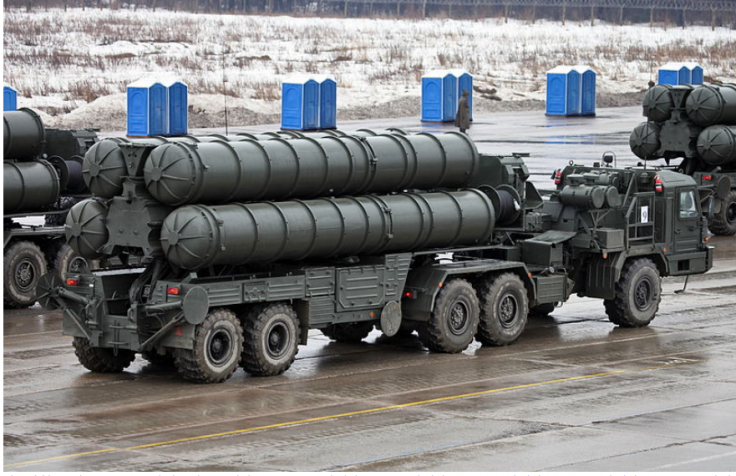Since Russia annexed Crimea in 2014, American companies have been prohibited from dealing with MMZ Avangard, a state-owned firm that makes missiles for one of Russia's most sophisticated weapons, the S-400 air-defense system.
In a measure of Western concern about the S-400, the United States ejected Turkey, a NATO member, from a joint fighter jet program in 2019 after Ankara took delivery of the Russian system.

Extreme Networks Providing MMZ Avangard With Computer Networking Equipment
But even as the United States was taking actions to blunt MMZ Avangard's business, a publicly traded American technology company, Extreme Networks, was providing MMZ Avangard with computer networking equipment for its office IT systems, according to emails and other business records seen by Reuters, as well as interviews with people familiar with the matter.
Equipment "May Have" Been Sold to MMZ Avangard Using a Surrogate Buyer
In a statement to Reuters, Extreme said that based on information provided by the news agency it believed equipment "may have" been sold to MMZ Avangard using a surrogate buyer. Extreme said the equipment was sold without its knowledge. It added, without providing evidence, that an intermediary in Russia was "complicit" in supplying its products via a front company to "bad actors." Extreme said it is reporting its findings of these potential sales to U.S. authorities.
Ukraine has accused Russia of deploying missiles made by MMZ Avangard against ground targets since Russia launched what it terms its "special operation" on Feb. 24. Ukrainian authorities said MMZ Avangard missiles killed at least thirty civilians in a gruesome attack against a convoy on the edge of the southern city of Zaporizhzhia last month. Neither Kremlin officials nor MMZ Avangard responded to questions for this article. MMZ Avangard's parent, Almaz-Antey, also didn't comment.
Between 2017 and 2021, MMZ Avangard obtained over half a million dollars' worth of Extreme equipment for its IT systems, according to the business records reviewed by Reuters and the people familiar with the matter. The products included high-speed switches, an essential building block of corporate IT networks, and software.
The records also show that the deals went through a seemingly innocuous corporation near Moscow, and despite two Extreme officials raising concerns, the sales went forward.
That a Russian military company, identified as a threat by Washington, continued to acquire U.S. computer hardware is a case study in how Western countries may have overestimated their ability to choke the Russian economy with export bans and trade sanctions. It also highlights how dependent Russia's military machine is on U.S. high-tech equipment.
In April, six weeks after Russia's invasion of Ukraine, an Extreme employee filed an internal complaint, seen by Reuters, alleging that the company was selling to various military manufacturers in Russia. "Extreme equipment is used on Russian warships," the complaint said, "in communications systems."
Extreme said in its statement that the allegations were brought by a disgruntled employee. An investigation by the firm had found nothing to corroborate any of the claims until Reuters brought "new facts" to the company's attention this month. The company said it ceased operations in Russia in March, adding that it subsequently launched a process to dismiss the disgruntled employee for poor performance. It said it has no records of sales involving Russian warships.
Extreme, which trades on the NASDAQ exchange and is headquartered in Morrisville, North Carolina, has earned a solid reputation in the United States and is an official partner of the National Football League. The NFL declined to comment for this article.
A Reuters investigation in August found that while the United States and allies banned high-tech exports to Russia to try to cripple its defense industry, and many tech companies announced that they had halted exports to Russia, the flow of Western brand-name computer parts to Russian clients hasn't stopped.
This account of how Extreme supplied MMZ Avangard and at least two other Russian military companies is based on interviews with three people familiar with the shipments as well as a review by Reuters of documents spanning five years to 2021. The documents include sales records and email exchanges between Extreme employees, customers and distributors. The shipments are reported here for the first time.









